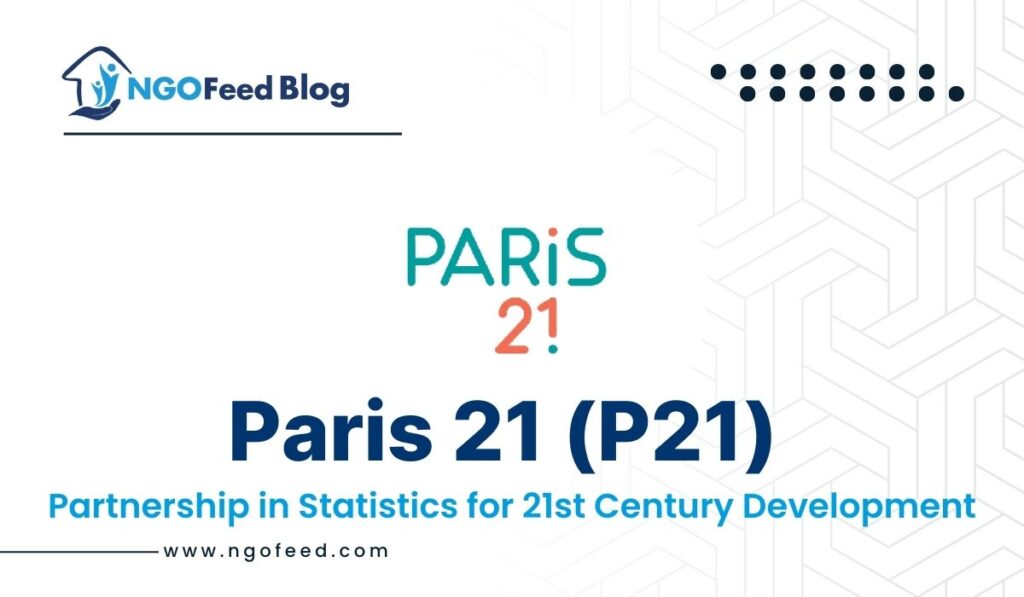Paris 21 Full Form: P21 stands for Paris 21, and is the Partnership in Statistics for 21st-Century Development. It is an international project designed to encourage developing nations to use and produce statistics more effectively. P21’s primary objective is to enhance evidence-based decision-making to promote growth and lessen poverty. It helps nations in producing trustworthy data necessary for tracking and achieving sustainable development goals (SDGs) and operates as a global advocate for the development of statistical capability.
Table of Contents
History of Paris 21
In 1999, P21 was founded as a result of a suggestion made by the UN Economic and Social Council (ECOSOC). The Organization for Economic Co-operation and Development (OECD)’s Development Assistance Committee (DAC) came up with the proposal in coordination with a number of foreign organizations, donor agencies, and countries. An important step toward acknowledging the crucial role statistics play in development planning and policymaking was taken with the founding of P21.
Paris 21 Role and Responsibilities
Advocacy: Promoting the value of statistics in development is known as advocacy.
Coordination: Encouraging collaborations between international organizations, donors, and national statistical offices.
Technical Support: supplying resources and knowledge to enhance statistical capacity.
Innovation: Promoting the gathering and analysis of data using cutting-edge instruments and techniques.
Monitoring and Evaluation: Monitoring advancements in statistical proficiency and development applications of data.
P21 Global Impact
P21 has significantly changed the statistical environment globally over time. Among the notable accomplishments are:
Better Data Quality: In many developing nations, data quality and availability have improved, supporting more effective policymaking.
Raised Awareness: The general public and policymakers now understand the value of statistics.
Building Capacity: Enhanced national statistics systems by training thousands of statisticians and data managers.
Global Standards: Participated in the creation and application of global guidelines for the gathering and processing of data.
Monitoring the SDGs: Was essential in assisting nations in keeping track of their advancement toward the Sustainable Development Goals.
Facts and Figures of Paris 21
- Global Reach: P21 has partnerships in more than 100 countries.
- Training Programs: Trained thousands of people through a number of workshops and training sessions.
- Publications: A multitude of materials, such as studies, technical papers, and guidelines, on different facets of development and statistics have been produced.
- Funding: Gets funding from a variety of sources, such as governments, international organizations, and business partners.
Paris 21 Challenges and Opportunities
P21 still has several challenges to overcome despite its successes:
- Resource Constraints: The execution of initiatives may be hampered by a lack of funding and manpower.
- Political Instability: Political instability can have an impact on the efficacy and continuation of statistics initiatives in particular areas.
- Technological Gaps: Many nations continue to lack access to the instruments and contemporary technologies required for effective data collection and analysis.
- Data Gaps: A major obstacle continues to be persistent gaps in data availability, particularly in unstable and conflict-affected states.
- Sustainability: Ensuring the long-term viability of capacity-building initiatives and statistical systems is a continious problem.
Notwithstanding these challenges, Paris 21 has a lot of chances to increase its influence:
- Digital Transformation: Improving statistical procedures and results by utilizing big data and digital technologies.
- Global Partnerships: Expanding cooperation with new partners, such as non-governmental organizations and businesses in the private sector.
- Innovative Solutions: Encouraging the use of novel approaches to data collecting and analysis, such as remote sensing and mobile data collection.
- Youth Engagement: Encouraging the next generation of data scientists and statisticians to enter the industry with new ideas and abilities.
- Policy Integration: Ensuring that mechanisms for developing national and international policies more successfully incorporate statistical evidence.
Conclusion
In order to improve statistical competence and encourage the use of high-quality data for development, Paris 21 (P21) is essential. Its initiatives have made a major difference in improving policymaking and advancing the global development goals. Through confronting present obstacles and grasping novel prospects, P21 can persist in promoting constructive transformation within the domain of statistics and beyond.

